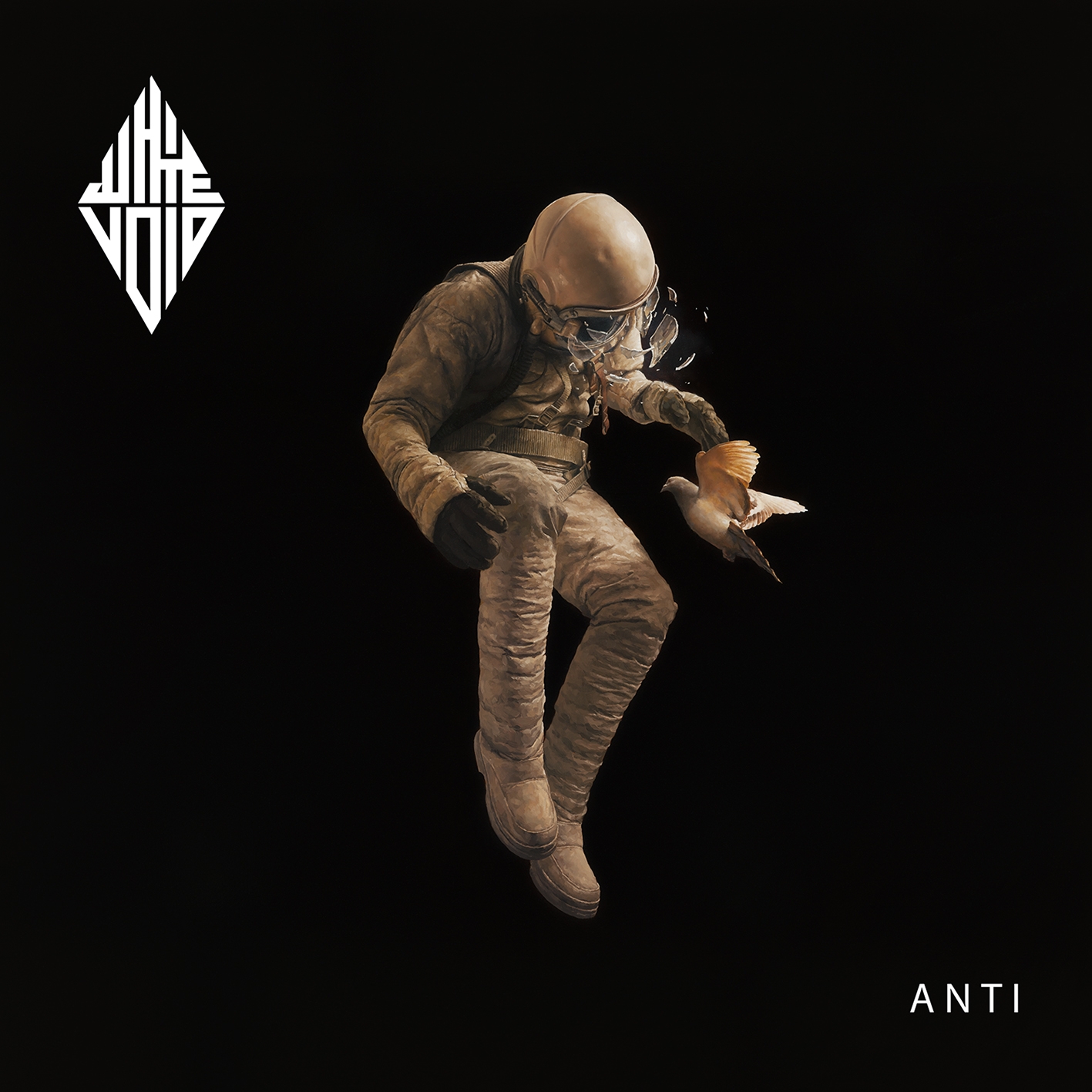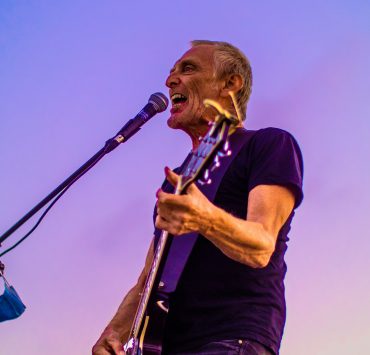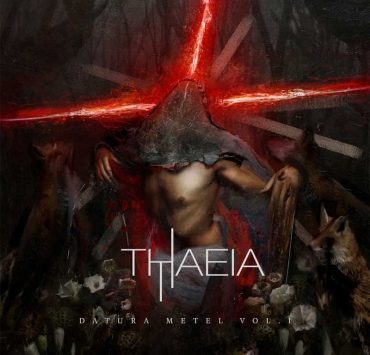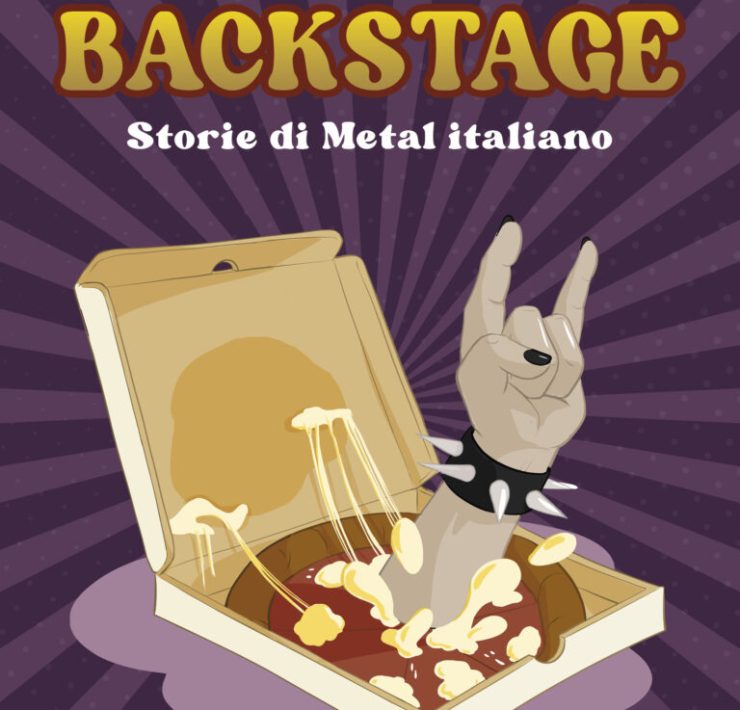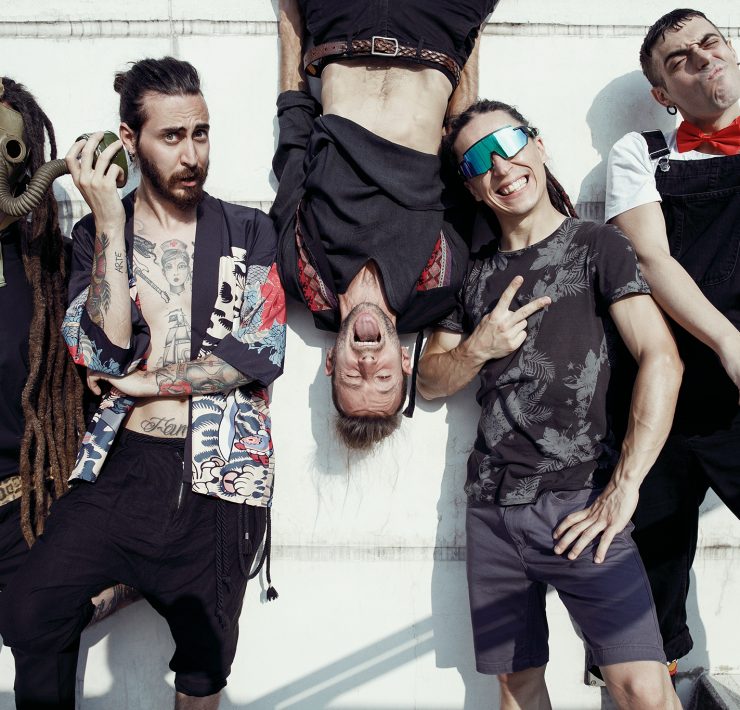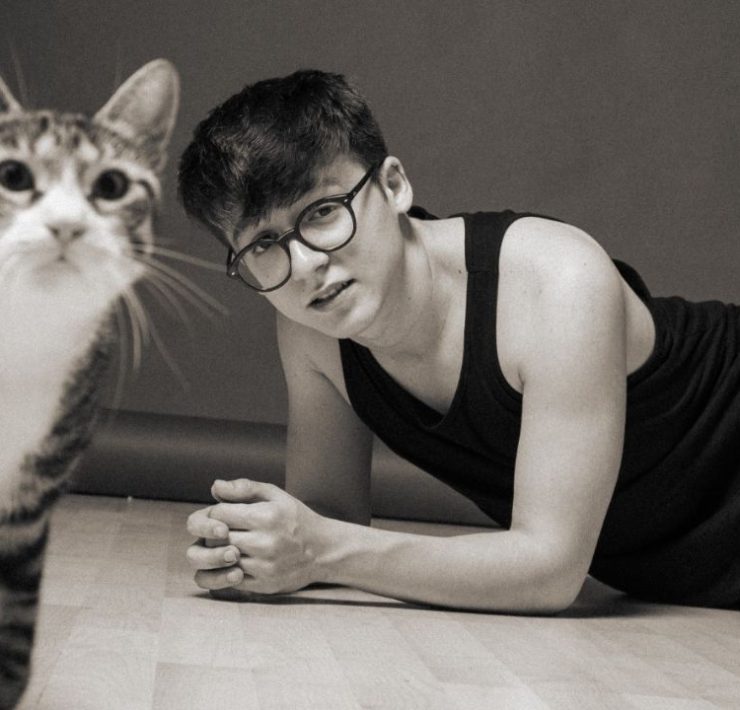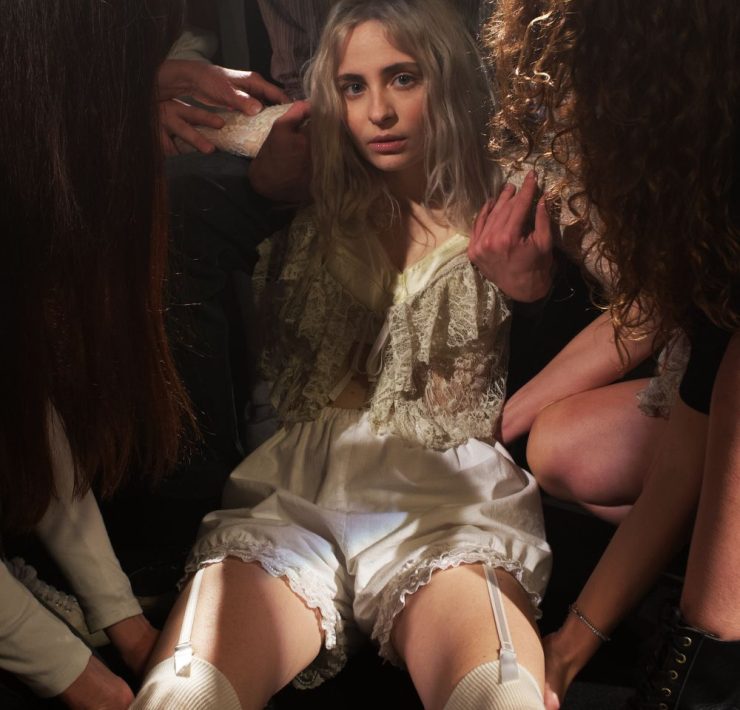WHITE VOID – Intervista al fondatore Lars Are Nedland
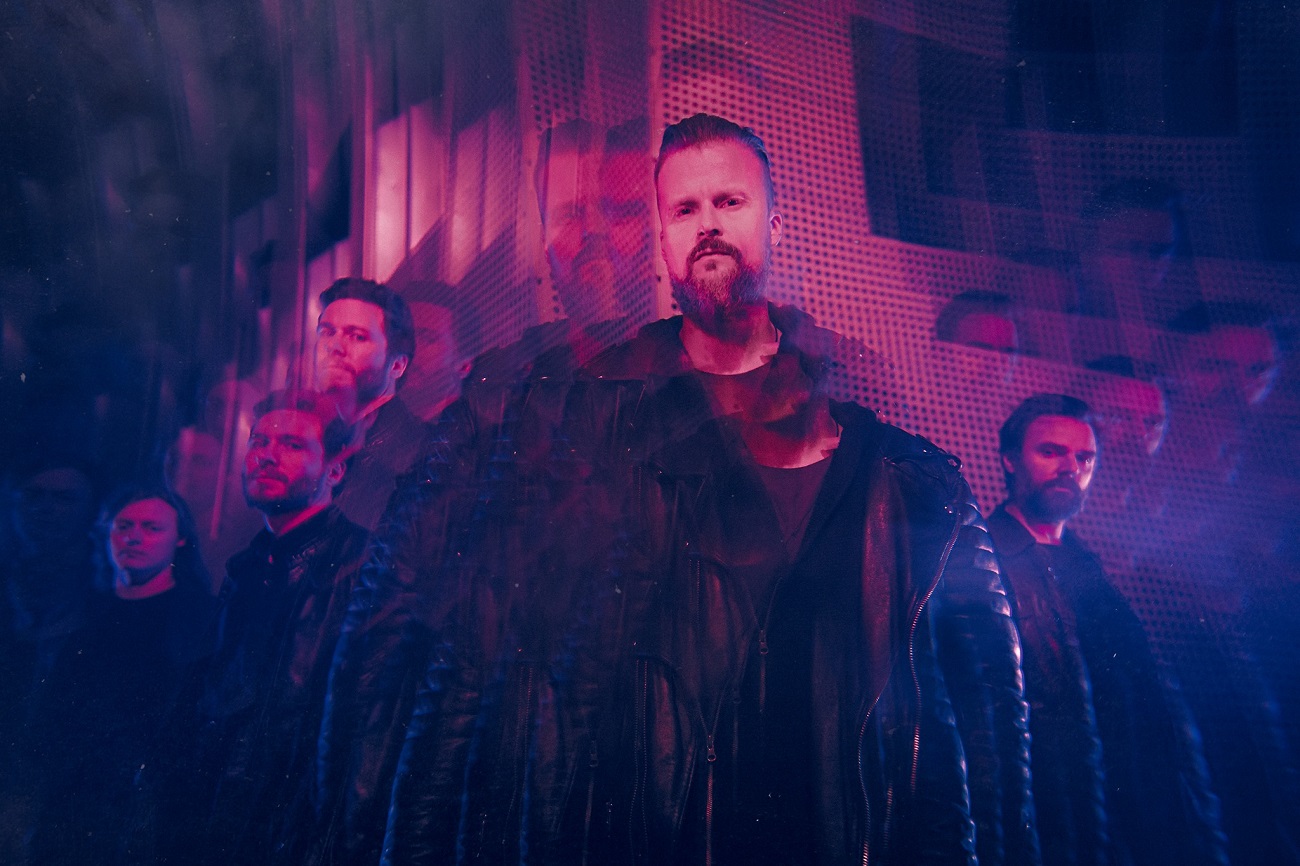
Ho avuto il piacere di intervistare Lars Are Nedland, membro della black/viking metal band norvegese Borknagar e della avantgarde metal band norvegese Solefald. Qui abbiamo parlato di “Anti”, l’album di debutto del suo nuovo progetto musicale White Void, un interessante mix di hard rock e new wave. L’album uscirà il 12 marzo su etichetta Nuclear Blast.
Ciao Lars, benvenuto sulle pagine di Tuttorock, come stai in generale?
Sto bene grazie. Lavoro da casa a causa della pandemia, ma è lo stesso per tutti noi, immagino.
Parlami un po’ della tua nuova creazione, White Void, una band che combina l’hard rock degli anni ’70 con la new wave degli anni ‘80. Quando e perché hai deciso di dare vita a questo progetto?
Ho iniziato a scrivere alcune canzoni basate sull’hard rock degli anni ’70 e sulla new wave degli anni ’80 nel lontano 2017, e mi sono reso conto che questo era qualcosa di diverso dalla musica dei Borknagar e dei Solefald, quindi ho scritto altre canzoni con l’intenzione di formare una nuova band per eseguirle. Dopo aver scritto l’intero album, ho iniziato a cercare musicisti per completare la formazione.
White Void, perché questo nome?
Mi sono sempre interessato alla filosofia da quando sono entrato nell’età adulta, e in particolare alle sue direzioni dell’assurdismo, dell’esistenzialismo e del nichilismo. Sia White Void come band che “Anti” come album sono fortemente ispirati dall’assurdismo di Albert Camus, che ha una visione affascinante dell’esistenza e di come relazionarsi ad essa: secondo Camus, la vita è irrazionale e senza ragione, quindi noi sei obbligato a fare domande: Chi sono io? Qual è il mio scopo? Come gestisco la differenza tra ciò di cui ho bisogno e ciò che il mondo mi da? Questo è ciò che io chiamo il “vuoto bianco dell’esistenza”. “Anti” si riferisce a questo in un modo cosciente, commentando, reagendo e seguendo le tracce de “Il mito di Sisifo” di Albert Camus.
So che gli altri membri della band provengono da vari mondi musicali, chi sono e come li hai incontrati?
Il chitarrista, Eivind, ha un background fatto di blues rock, pop e musica elettronica. È un mio vecchio amico ed è stato il primo ad essere reclutato nella band per cercare di trasformare i riff di chitarra dando loro un approccio più blues in stile anni ‘70. Il nostro batterista Tobias proviene dal jazz e dal mondo fusion e ha suonato di tutto, dal prog al black metal. La sua batteria prog è stata essenziale per la band. Tramite Tobias abbiamo incontrato Vegard, il nostro eccellente bassista, che ha un background nella musica elettronica. Ha aggiunto una nuova profondità e ha dato più groove al nostro suono.
Parliamo un po’ del vostro album di debutto, “Anti”. Ascoltandolo la prima volta mi sono ritrovato davanti a qualcosa che non avevo mai sentito prima, dopo cinque o sei volte l’ho apprezzato tantissimo. Hai scritto tu sia la musica che i testi?
Sì, scrivo tutta la musica e tutti i testi per il progetto White Void. Le due principali ispirazioni musicalmente parlando sono il rock occulto degli anni ‘70 e la new wave degli anni ‘80. Volevo provare a fondere questi stili e creare un’espressione che si reggesse sulle spalle di questi stili senza diventare un semplice vestito retrò. Volevo un misto di spinta e di atmosfera, una miscela del meglio che il vecchio e il nuovo hanno da offrire: ci piace pensare a noi stessi come ad una band che trae ispirazione dal passato senza rimanervi bloccati.
Cosa significa “Anti” per te?
Anti è una parola interessante. È un prefisso, quindi non ha alcun significato fino a quando non viene combinato con una parola diversa. Ciò significa che può essere sia positivo che negativo, e sta all’ascoltatore riempirlo di significato. Prende una posizione contro qualcosa, ma contro cosa? Beh, sta a te decidere.
Anche l’idea della copertina dell’album è tua?
Sì, volevo qualcosa che rispecchiasse il lato concettuale dell’album, e questa immagine si adatta perfettamente ad esso. È un dipinto a olio chiamato “Adrift” dell’artista neozelandese Jeremy Geddes. Sono un fan della sua arte da anni, quindi sono stato davvero entusiasta quando abbiamo avuto il permesso di usarlo.
La mia canzone preferita è “The Fucking Violence of Love”, tu quale delle 8 tracce consideri la più rappresentativa dell’album?
“Anti” è stato scritto come un album, quindi tutte le canzoni sono collegate. È difficile dire se una singola canzone racchiuda l’intero atteggiamento dell’album, ma “The Fucking Violence of Love” contiene molti degli elementi che rendono White Void quello che è: spinta, atmosfera e senso della melodia.
Nella tua carriera hai suonato la batteria nei Carpathian Forest, il piano e le tastiere nei Borknagar e nei Solefald, poi hai cantato in varie band prima dei White Void, sul palco ti senti più a tuo agio con il microfono o quando suoni uno strumento?
Beh, c’è più spazio per variare con un microfono, quindi penso che sia il mio modo preferito di esprimere la mia musicalità. Detto questo, mi piace molto anche la strumentazione, quindi è un po’ difficile scegliere.
Ascoltando le tue produzioni musicali deduco che sei un ascoltatore di molti tipi di musica, è così?
Sì, ascolto molta musica diversa. Black, pop, prog, elettronica, classica, jazz e così via. Le principali ispirazioni musicali per i White Void, tuttavia, sono gruppi rock occulti come Coven e Blue Öyster Cult, gruppi New Wave come New Model Army e Duran Duran e prog come King Crimson e Gentle Giant.
So che lavori anche per una TV norvegese, come sta andando quella parte della tua carriera?
Non sono più in TV, ho cambiato corsia e sono entrato nella pubblicità alcuni anni fa, quindi ora realizzo spot pubblicitari e curo strategie di lavoro per marchi e associazioni.
Ora che i live sono fermi, quali sono i tuoi futuri progetti musicali?
Il piano per i White Void in questo momento è promuovere l’album nel miglior modo possibile. Sono sicuro che ad un certo punto torneranno i concerti, ma quando suoneremo dal vivo ci sarà più di una questione aperta poiché il coronavirus è ancora presente in tutto il mondo. Immagino che questa situazione ci spingerà a rivolgere maggiormente la nostra attenzione alla creazione della musica più che al modo di eseguirla.
Grazie mille per il tuo tempo, vuoi aggiungere qualcosa e salutare i lettori dell’intervista?
Grazie mille a te per aver ascoltato la nostra musica e per aver dedicato del tempo ad aiutarci a parlarne alla gente. Spero di vedervi in tour.
MARCO PRITONI
Band:
Voce: Lars Nedland
Batteria: Tobias Solbakk
Basso: Vegard Kummen
Chitarra: Eivind Marum
https://www.facebook.com/whitevoidofficial
https://www.instagram.com/whitevoidofficial/
https://twitter.com/white_void_band
https://www.youtube.com/channel/UC5q74spN32qtlkQTLoSErHw
https://www.whitevoid.bandcamp.com
** ENGLISH VERSION **
I had the pleasure of interviewing Lars Are Nedland, member of the norwegian black / viking metal band Borknagar and of the norwegian avantgarde metal band Solefald. Here we talked about “Anti”, the debut album of his new musical project White Void, an interesting mix of hard rock and new wave. The album will be released on March 12 on the Nuclear Blast label.
Hi Lars, welcome to the pages of Tuttorock, how are you doing in general?
I’m good, thanks. Working from home because of the pandemic, but that’s the same for all of us, I guess.
Tell me a little about your new creation, White Void, a band that combines 70’s hard rock with 80’s new wave. When and why did you decide to form this project?
Well, I started writing some songs based on seventies hard rock and eighties new wave all the way back in 2017, and it dawned on me that this was something different from Borknagar and Solefald, so I wrote more songs with the intention of forming a new band to follow this new expression. After having written the full album, I started looking for musicians to complete the lineup.
White Void, why this name?
I have been interested in philosophy my entire adult life, and especially the directions of absurdism, existentialism and nihilism. Both White Void as a band and “Anti” as an album is heavily inspired by the absurdism of Albert Camus, which has a fascinating take on existence and how to relate to it: According to Camus, life is irrational and without reason, so we’re bound to ask questions: Who am I? What is my purpose? How do I handle the difference between what I need and what the world serves me? This is what I call the “white void of existence”. “Anti” relates to this in a stream of consciousness fashion, commenting on, reacting to and trailing the tracks of Albert Camus´ “The Myth of Sisyphus”.
I know that the other members of the band come from various musical worlds, who are they and how did you meet them?
The guitarist, Eivind, has a background in blues rock, pop and electronic music. He is an old friend of mine and was the first one to be recruited into the band to twist the guitar riffs into a more bluesy seventies approach. Our drummer Tobias comes from jazz and fusion and has played everything from prog to black metal. His progressive drumming has been essential to the band. Through Tobias we met Vegard, our excellent bass player, who has a background in electronic music. He really added a new depth and groove to our sound.
Let’s talk a little about your debut album, Anti. Listening to it the first time I found myself in front of something I had never heard before, after five or six times I loved it. Have you written both music and lyrics?
Yes, I write all music and all lyrics for White Void. The two main inspirations musically speaking is the occult rock of the seventies and the new wave of the eighties. I wanted to try and merge these styles and create an expression that stood on the shoulders of these styles without being a simple retro outfit. I wanted a mixture of drive and atmosphere, a blend of the best that old and new has to offer: We like to think of ourselves as a band who draws inspiration from the past without getting stuck in it.
What does “Anti” mean to you?
Anti is an interesting word. It’s a prefix, so it doesn’t really obtain any meaning until it is combined with a different word. That means it can be both a positive and a negative, and it’s up to the listener to fill it with meaning. It takes a stance against something, but what is it against? Well, that’s up to you to decide.
Is the album cover idea yours too?
Yes, I wanted something that mirrored the conceptual side of the album, and this image fit the bill perfectly. It’s an oil painting called “Adrift” by New Zealand artist Jeremy Geddes. I’ve been a fan of his art for years, so I was really stoked when we got permission to use it.
My favorite song is “The Fucking Violence of Love”, which do you consider the most representative of the album?
“Anti” was written as an album, so all the songs are connected. It’s hard to say if a single song capsules the entire attitude of the album, but TFVOL contains a lot of the elements that makes White Void what it is: Drive, atmosphere, hooks and a sense of melody.
In your career you have played drums in Carpathian Forest, piano and keyboards in Borknagar and Solefald, then you sang in various bands before White Void, on stage do you feel more comfortable with the microphone or when you play an instrument?
Well, there’s more room for variation with a microphone, so I think that is my favourite way of expressing my musicality. That said I really enjoy instrumentation as well, so it’s kind of hard to choose.
Listening to your musical productions I deduce that you are a listener of many types of music, is that so?
Yes, I listen to a lot of different music. Black, pop, prog, electronic, classical, jazz and so on. The main musical inspirations for White Void, though, are occult rock bands like Coven and Blue Öyster Cult, New Wave bands like New Model Army and Duran Duran as well as progressive outfits like King Crimson and Gentle Giant.
I know you also work for a Norwegian TV, how is that part of your career going?
I’m not in TV anymore, I changed lanes and went into advertising a few years ago, so I’m now making commercials and working strategy for brands and organizations.
Now that live shows have stopped, what are your future musical projects?
The plan for White Void right now is promoting the album as best we can. I’m sure there will be live shows at some point, but when we’ll play live is more of an open question as the corona virus is still in effect all over the world. I guess this situation makes us turn our attention to creating music more than performing it.
Thank you very much for your time, do you want to add something and greet the readers of the interview?
Thank you so much for listening to our music and for taking the time to help us tell people about it. Hope to see you on tour.
MARCO PRITONI
Sono nato ad Imola nel 1979, la musica ha iniziato a far parte della mia vita da subito, grazie ai miei genitori che ascoltavano veramente di tutto. Appassionato anche di sport (da spettatore, non da praticante), suono il piano, il basso e la chitarra, scrivo report e recensioni e faccio interviste ad artisti italiani ed internazionali per Tuttorock per cui ho iniziato a collaborare grazie ad un incontro fortuito con Maurizio Donini durante un concerto.



